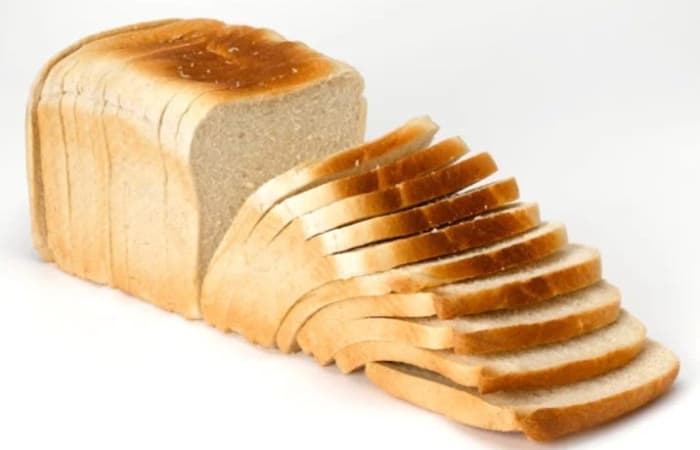

























Loading banners


NEWS EXPRESS is Nigeria’s leading online newspaper. Published by Africa’s international award-winning journalist, Mr. Isaac Umunna, NEWS EXPRESS is Nigeria’s first truly professional online daily newspaper. It is published from Lagos, Nigeria’s economic and media hub, and has a provision for occasional special print editions. Thanks to our vast network of sources and dedicated team of professional journalists and contributors spread across Nigeria and overseas, NEWS EXPRESS has become synonymous with newsbreaks and exclusive stories from around the world.

A loaf of sliced bread
The price of bread, a staple in many Nigerian households, has remained high across various parts of the country despite a drop in the cost of flour, a key ingredient in bread production, Daily Trust?s findings have revealed.
Last year, the price of flour skyrocketed, hitting over NGN 80,000 per bag in markets across Kano and other northern states as well as other parts of Nigeria, a development which forced bakeries to increase the price of bread.
In some parts of the country, a loaf hitherto sold for N700 became N1,200 and that of N500 became N1,000, a development that forced some families to gradually erase bread from their menus.
It was gathered that late last year a 50kg bag of flour was sold between N70,000 and N71,000 and a bag of sugar cost N83,000 and N85,000 per 50kg, but as at the first week of March 2025, a 50kg bag of flour was selling at N58,000 while sugar is selling at N80, 000, yet the price of bread has remained high.
In Abuja, our correspondent who went round some major markets observed that a 50kg bag of flour is sold between N60,000 and N65,000 as against N80,000 and above last year.
It is said that in Nigeria, the bread industry generates up to US$19.81 billion and the market is expected to grow annually by 11.04 per cent.
Idris Bello Biyu, a civil servant in the Kano State Teachers Service Board and father of four, said that at a time he needed at least N2,200 to buy bread every morning; hence, the situation became unbearable and he had no option than to cancel bread from the family?s menu.
?Sadly, when the reduction in the prices of commodities began, we thought the price of bread would drop as well, but it didn?t happen,? he said.
Business owners also affected are the tea vendors, mostly known as Mai shayi.
Adamu Garba Dogo Maishayi, a ?shayi? vendor in Gombe, has raised concerns over a significant decline in tea sales, attributing the downturn to the high cost of bread.
Dogo Maishayi, who operates a mobile tea business, explained that many of his customers now opt for tea without bread.
?The authorities should encourage bakers to reduce the prices of bread in line with the decrease in flour prices. The high cost has negatively affected our profits.
?Bakers do not hesitate to increase bread prices when the cost of flour rises, but they are slow to reduce prices when flour prices drop,? Dogo Maishayi said.
However, Alhaji Aliyu Abdullahi, chairman of the Bakers? Association in Gombe, offered insight into the reasons behind the stagnation in bread prices.
He explained that the recent reduction in flour prices has been minimal, which has had little impact on the cost of bread. ?The reduction in flour prices is just about 3 per cent, which is insignificant,? he said.
?If the price of a bag of flour had dropped by N10,000, we would see a ripple effect on bread prices. In that case, a loaf priced at N1,000 would drop to N900.?
The chairman of the Association of Master Bakers and Caterers of Nigeria (AMBCN), Federal Capital Territory (FCT) chapter, Mr Ishaq Abdulraheem, said that although there was a slight reduction in the price of flour, it couldn?t lead to a fall in the price of bread.
He said: ?At the time of the controversy, flour was sold at N60,000. Currently, it is N58,000. Sugar too has reduced from N82,000 to N80,000.
?Note that we are paying for electricity. And the price of diesel is fluctuating. Also, the price of margarine and nylon we use for packaging has not changed. Yeast has also not changed. Nothing has come down apart from flour and sugar.?
On the major factor affecting bread price, he said: ?As long as Nigeria keeps importing wheat, the price of bread will remain high. We can use cassava as an alternative. That?s why we have been agitating for the government to ensure that cassava production is increased.?
A bakery owner in Kano State, Alhaji Manu Inuwa, told our correspondent that the public failed to understand that even if the prices of sugar and flour dropped, other items have not dropped, and they are very vital in bread making.
He added that people should understand that there are stages in increasing the price of bread, which are the same when trying to reduce it. He said, ?We don?t increase the price outright; rather, we systematically reduce the weight of the loaf, and from there, other stages will be followed till the end, which is an increase in price.?
?60,000 bakeries out of business?
Many bakery owners have lamented that the high cost of production is forcing them out of business.
Last week, the president of the Premium Breadmakers Association of Nigeria (PBAN), Engr. Onuorah Emmanuel has raised the alarm over the worsening economic conditions crippling the baking industry.
He revealed that more than half of bakeries belonging to his members alone have shut down in recent years due to skyrocketing production costs, high interest rates, and insecurity.
Speaking during the PBAN Day Out 2025 held in Lagos with the theme: ?The Business of Baking: Pathways to Profit, Productivity and Growth,? Emmanuel painted a bleak picture of the sector, lamenting that bakers are battling multiple economic pressures that threaten their survival and the livelihoods of thousands of Nigerians.
?The finances are stifling us; interest rates are astronomical. You can?t go to the bank and get a single-digit loan. All their loans are above 30 per cent. How does any business survive with that?? he asked.
In Kano, Umar Tijani , a bakery owner at Yan Kaba, said the high cost of production has forced many to exit the business.
Tijjani said that because it is no longer profitable to run the business, he has since abandoned production and is contemplating quitting the business entirely.
A bread producer in Ilorin, Mr Abdulazeez Abdullateef, said the slight drop in flour prices has not translated into any meaningful reduction in the cost of bread.
He told Daily Trust on Sunday that flour prices fell only marginally in recent weeks.
According to him, they used to buy a bag of flour for N66,000. The current price is between N63,000 and N63,500.
He added that those who pay cash get it between N62,000 and N63,000.
He said the difference is barely N2,000 and has little effect on production.
Abdullateef explained that other items used in baking remain expensive.
?Flour is not the only ingredient we use. We buy yeast, flavour and preservatives. We also pay workers and spend on transport for distribution. This is why the price of bread has not changed,? he said.
He added that bakers have slightly increased the grams of their loaves.
?The 600-gram loaf now weighs between 610 grams and 630 grams. Anything more than that will take us back to loss,? he said.
Chairman of the Kwara Master Bakers Association, Alhaji Abdulfatai Alaba, also dismissed the impact of the slight drop in flour prices.
He compared the situation to the current fuel price challenge.
He said a reduction of one or two thousand naira on a bag of flour makes no significant difference with the high cost of other inputs.
?If we are talking about a reduction of like N10,000 or more, that is where the impact would have been felt much, not what we are having now,? he explained.
He noted that ?flour rose from N38,000 during the previous (Buhari) administration to more than N64,000 at a point.?
He said the ?current price of about N61,000 has not eased the pressure on bakers.?
Alaba said many bakers ?continued to operate at a loss but avoided further price increases because of the economic hardship in the country.?
He added that the recent fall in the price of some food items made it more difficult to adjust bread prices upward.
Bakers? president gives conditions to drop price
Speaking with Daily Trust, the president of the Premium Breadmakers Association of Nigeria (PBAN), Engr. Onuorah Emmanuel insisted that there has been no substantial reduction in the price of flour.
Besides, he said the energy cost also played a key role in the increase in the price of bread.
Emmanuel said that if the price of flour and other commodities like energy drops drastically, the bakers would be forced to reduce the bread price.
He said, ?How much has come down in the price of flour? N500. Flour is still selling above N55,000. We have not increased bread prices in the last one year. Energy cost shot everything up again. Diesel prices have not come down. If all the prices come down, we will drop our price.
?My energy cost before now was like N600,000 to N800,000, but now it is close to N3million plus. Even in the midst of this, check the weight of our bread; the weight has increased substantially, too.? (Daily Trust)